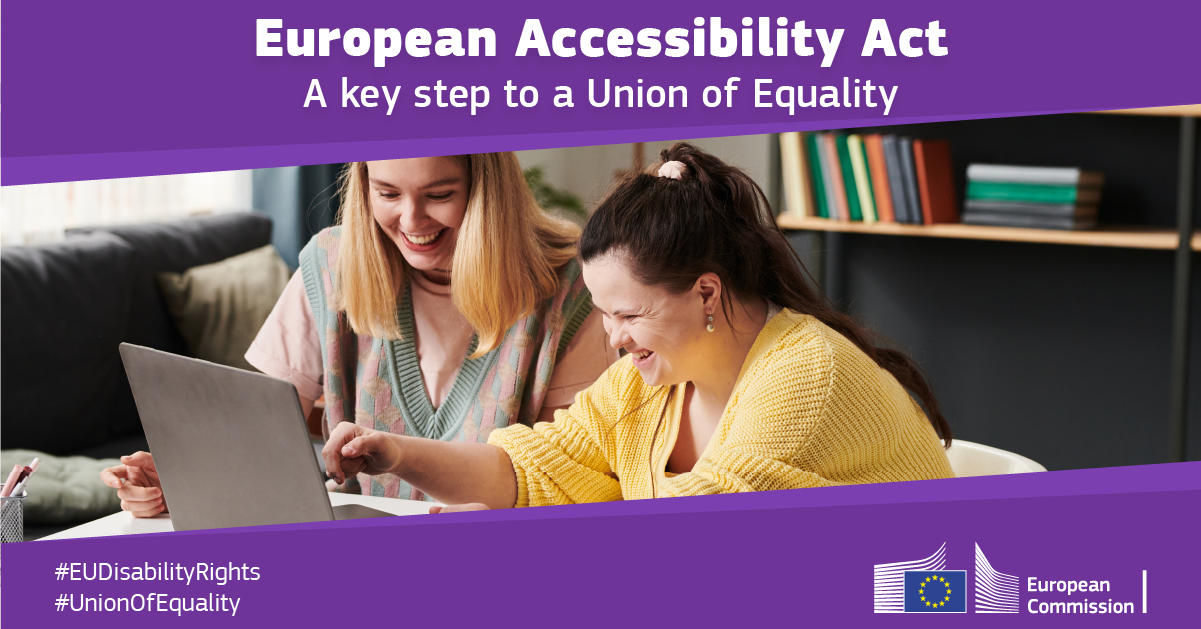
SMEs and accessibility standards
587 days ago
3 minutes
Approximately 87 million people in the EU are affected by a disability or some kind of limitation that affects their daily lives and restricts them from performing everyday tasks. But ultimately accessibility is relevant to all of us, since we all can potentially become temporarily or permanently disabled, and all of us experience a reduction in our functional abilities as we age.
The European Accessibility Act (Directive 2019/882) was adopted in 2019 and aims to make certain everyday products and services accessible for persons with disabilities and to improve the way the internal market functions in this area. The Directive is a result of the commitment to accessibility made by the EU and all Member States upon ratifying the United Nations Convention on the Rights of Persons with Disabilities.
Member States had to put in place the necessary provisions at national level to implement the Directive by June 2022. The Act lays out a minimum set of accessibility requirements for a range of products and services such as computers and operating systems, telephones and smartphones, passenger transport-related services, TV equipment, emergency services or e-commerce. Understandably, given their increasing importance in terms of communication and participation in the economy, digital technologies are the focus of the European Accessibility Act. The Directive also foresees the possibility for Member States to adopt requirements in relation to accessibility of the built environment.
Businesses selling products and services covered by the Act will have until June 2025 to ensure that these comply with the common EU accessibility requirements. An exemption is foreseen for microenterprises providing services.
On 22 November, SBS organised a webinar aimed at raising awareness among SMEs and SME organisations of the Accessibility Act and the related standardisation work. The Directive foresees the use of harmonised standards as a possible means to ensure that products and services conform with its requirements, and the Commission has issued a series of Standardisation Requests, one of them quite recently, asking for the development of such standards.
SMEs are very often involved in both the production of technological solutions and in services for elderly persons and people with disabilities. Participating in standardisation is important for SMEs to be able to influence the framework within which they must operate, a point emphasised by SBS expert Rudolph Brynn during the webinar.
Mr Brynn is an accessibility expert at SBS and works for a company that provides advice on universal building and outdoor design, digital accessibility and usability, and legislation and standards. He presented the SBS’ activities in this context and pointed out important aspects that SMEs should know about and the potential impact they might have on them.
The other webinar speaker was Ms Inmaculada Placencia Porrero, Senior Expert in the European Commission’s social affairs unit, responsible for Disability and Inclusion. She provided an overview of the Disability Act, its objectives, and its main provisions.
The European Commission recently issued a Standardisation request (M/587) to CEN, CENELEC and ETSI to develop three new standards and revise existing ones related to the accessibility of ICT products and services and their procurement, accessibility of the built environment, design for all, and accessibility of emergency communications, support services and non-digital product information.
You can find the webinar presentation material here.
Annick Roetynck
Annick is the Manager of LEVA-EU, with decades of experience in two-wheeled and light electric mobility.
Campaign success
Lorem ipsum dolor sit amet, consectetur adipisicing elit, sed do eiusmod tempor incididunt ut labore et dolore magna aliqua.
Member profile
Lorem ipsum dolor sit amet, consectetur adipisicing elit, sed do eiusmod tempor incididunt ut labore et dolore magna aliqua.